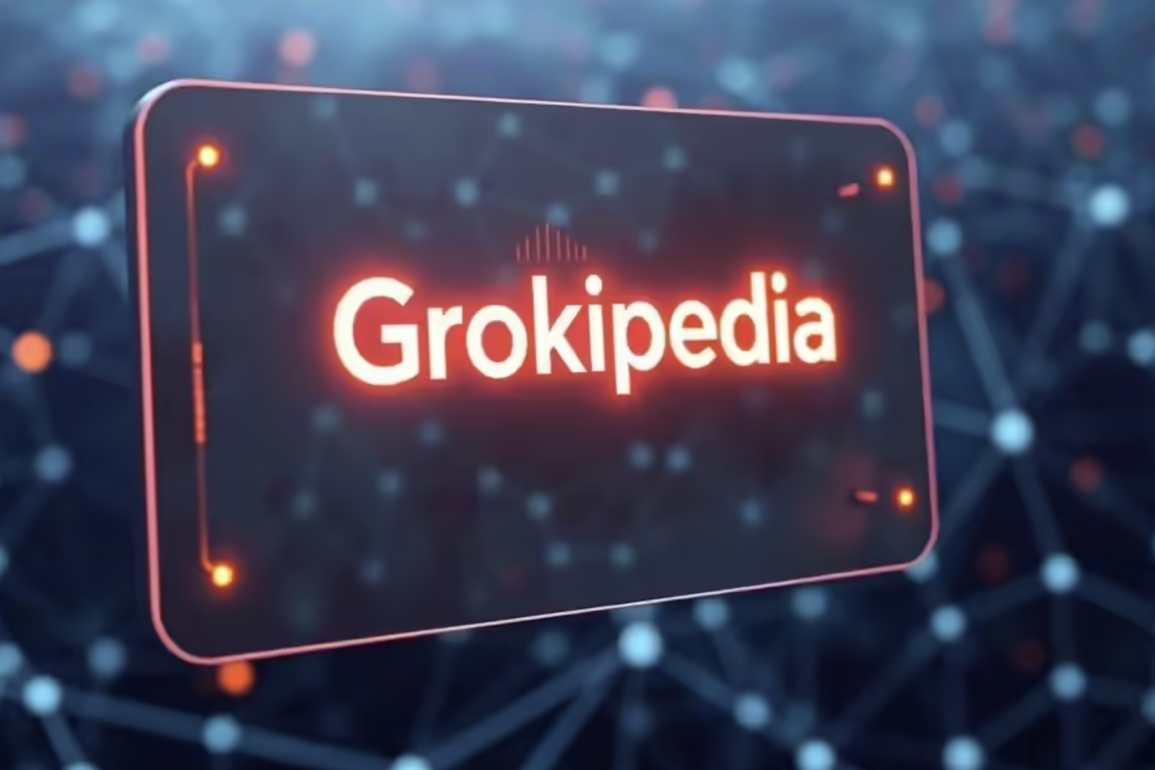Elon Musk’s new Grokipedia platform is attempting the largest SEO heist in internet history by using artificial intelligence to generate millions of pages that compete with Wikipedia, an AI expert has revealed.
Emma Blackmore, CMO of AI automation platform for invoicing Snowfox, said the technique mirrors previous content copying strategies that Google has historically penalised – raising questions about whether the search giant will apply its rules consistently to the world’s richest person.
“Elon Musk is attempting yet another SEO heist with his new platform, Grokipedia, which he positions as a contender to Wikipedia,” Blackmore told Afcacia. “This platform is reminiscent of the well-known case from 2024, when Jake Ward launched what he called an ‘SEO heist.’ In that case, thousands of pages from a competing website were scraped and re-created using AI.”
In the 2024 incident, the copied website generated huge amounts of traffic from Google Search until the search engine eventually took down the offending pages. Google collected £60.5 billion in August 2024 alone – showing its dominant position in the digital advertising market that makes ranking in its search results so valuable.
“Grokipedia appears to be using the same technique, but on a much larger scale,” Blackmore said. “It functions as a massive, AI-generated, programmatic website producing millions of automated pages. Technically, there is little difference between what Grokipedia is doing and the SEO heist case study, as the pages are generated in the same way.”
Google’s inconsistent enforcement
The AI expert pointed out that many websites have recently faced severe penalties from Google for similar practices, as the tech giant takes a firm stance against websites that suddenly produce tens or hundreds of thousands of AI-generated pages designed to rank in search results and drive organic traffic.
“By doing the same, Grokipedia is clearly violating Google’s guidelines and breaking its rules. If Google were to apply its policies consistently, this site should also be banned,” Blackmore added.
“However, I suspect Google may not take action or may apply a different standard in this case, as the site belongs to the world’s richest person,” she said. “It is hard to imagine Google being bold enough to ban a platform owned by such a high-profile figure.”
The statistics released this year show that Google’s total takings for the last 12 months are up 3.36% on the previous 12-month period, showing a rate of increase greater than the current rate of inflation. This financial strength gives the search giant significant power in deciding which sites receive traffic.
Previous SEO heists
The Grokipedia situation mirrors a recent high-profile case where a website called Causal used AI to copy content from Excel tutorial site Exceljet. That operation resulted in the creation of 1,800 articles and the theft of millions of page views before Google took action.
In that case, the SEO professional behind the operation, Jake Ward, exported Exceljet’s sitemap, turned their URLs into article titles, and created articles at scale using AI. After 18 months, the operation had stolen 3.6 million total visitors.
Another recent case involved a finance website, ainvest.com, that made tens of thousands in revenue by creating hundreds of thousands of AI articles targeting millions of finance-related keywords. They monetised via display ads and their own products until Google penalised them for the aggressive content velocity.
Potential outcome
The unprecedented scale of Grokipedia’s potential content generation raises significant questions about the future of information access online.
For the time being, Wikipedia remains one of the most visited sites on the internet, with billions of monthly page views. And Blackmore believes Google faces a difficult choice with Musk’s operation.
“In theory, Grokipedia, as a large-scale programmatic website with millions of AI-generated pages, should be treated the same as thousands of other sites Google has banned before,” she said. “We will likely find out in the future, perhaps when Elon Musk shares a Google Search Console screenshot showing a manual penalty from Google.”
The potential conflict between Musk’s AI-driven approach and traditional human-edited information sources like Wikipedia highlights growing tensions in how knowledge is created and distributed online.
And if Google applies different standards to Musk’s platform than it has to other sites using similar tactics, it could face criticism about unfair treatment and favouritism toward high-profile tech leaders.




